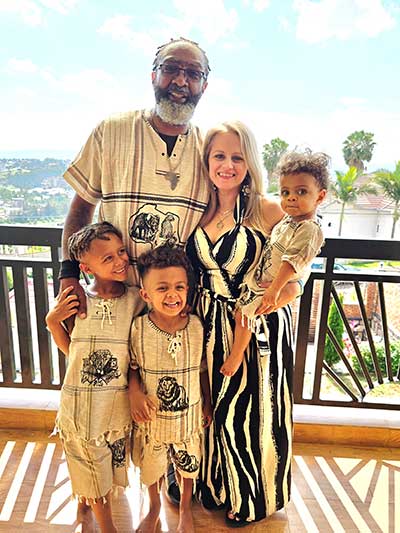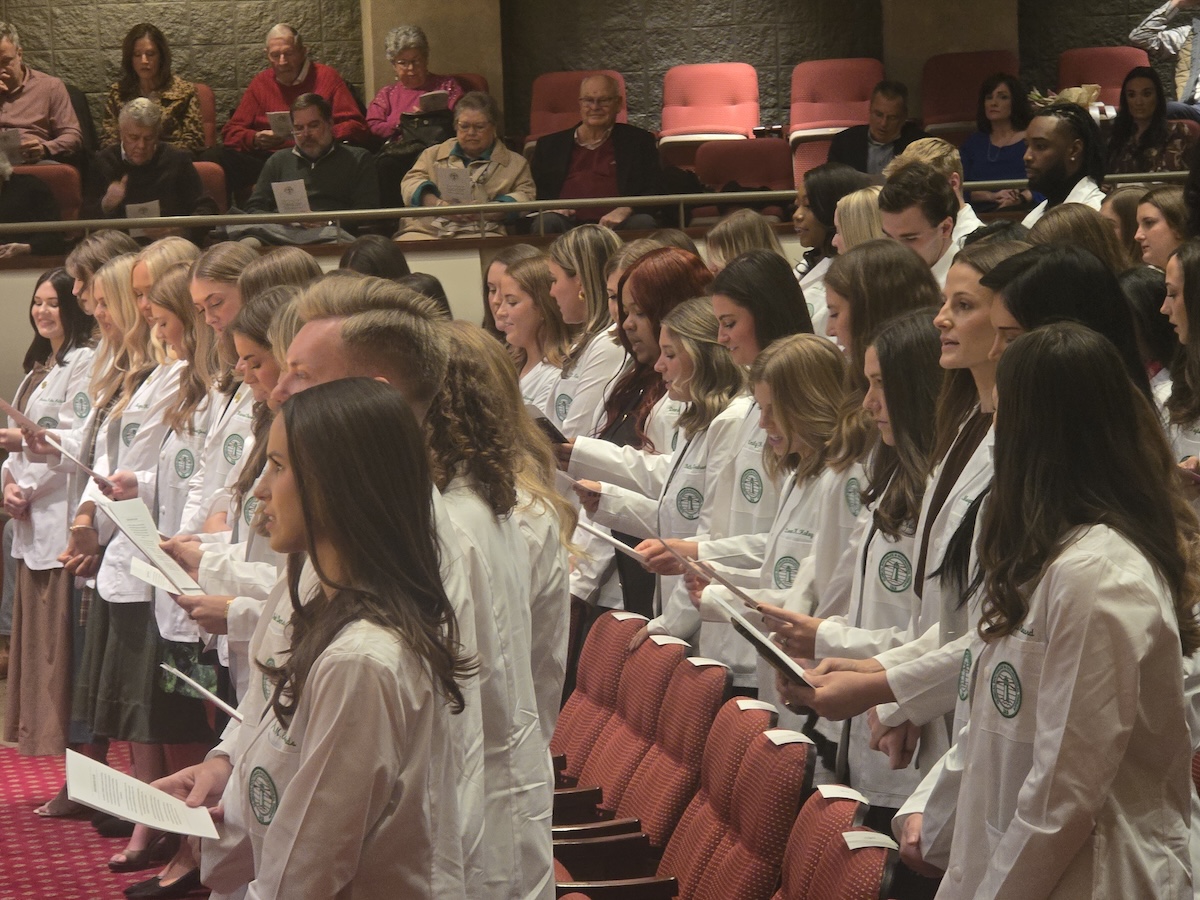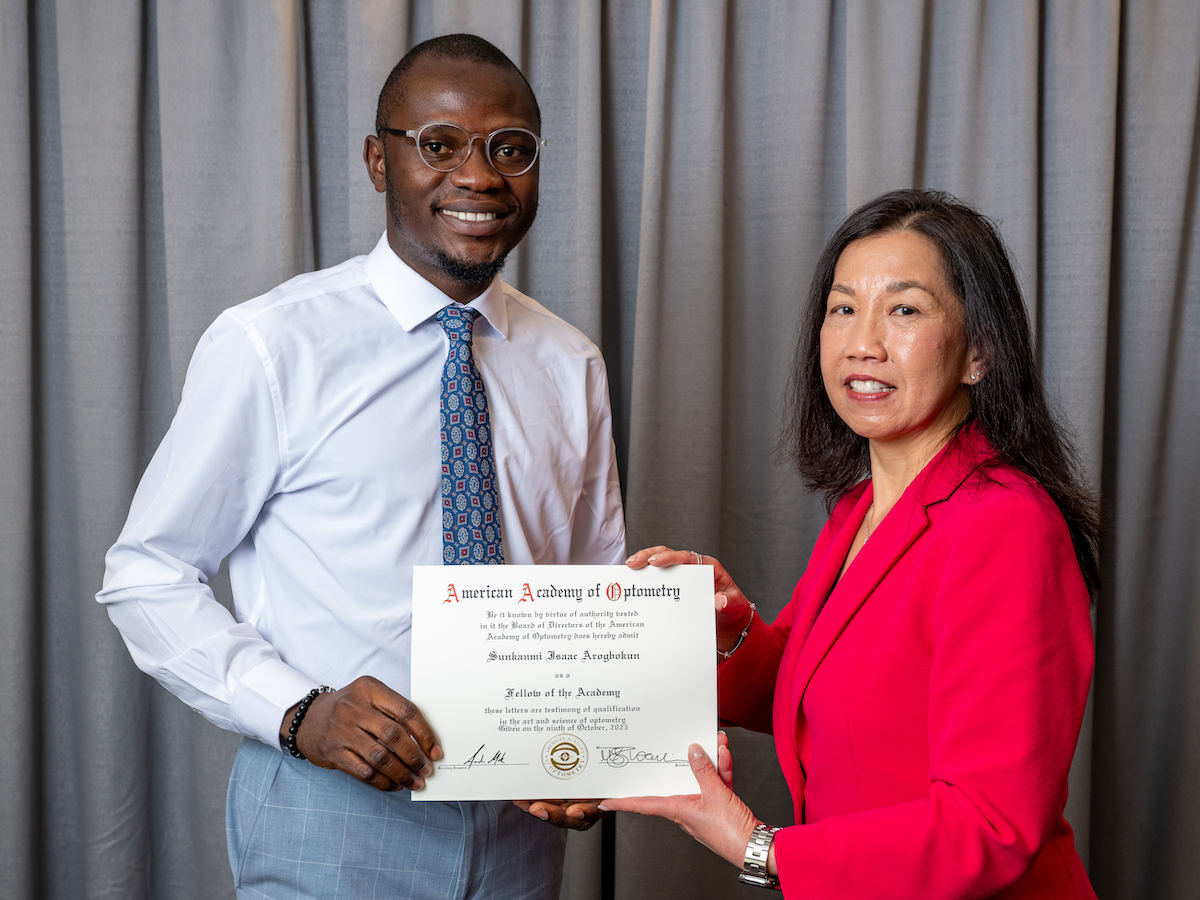 OT Abi Grigsby and her family in Rwanda, where she is working to improve the lives of people with visual impairments.
OT Abi Grigsby and her family in Rwanda, where she is working to improve the lives of people with visual impairments.
Occupational therapist Abi Grigsby is the first recipient of the Mary Warren Endowed Scholarship, awarded to an outstanding student in the Department of Occupational Therapy’s Low Vision Rehabilitation Graduate Certificate (LVRGC) program. The scholarship covers a semester of tuition and supports the program’s commitment to advancing the field of low vision care.
The award honors Dr. Mary Warren, an internationally recognized occupational therapist whose work helped establish low vision rehabilitation as one of the profession’s core practice areas. Dr. Warren founded the LVRGC program in 2001 and directed it for 17 years until her retirement. The scholarship celebrates her teaching, mentorship, and field-defining contributions, carrying forward her legacy by supporting students dedicated to improving the lives of people with vision loss.
Grigsby’s work embodies that mission. The Michigan native is currently building sustainable low vision occupational therapy services in Rwanda, an effort shaped by her professional training and life experiences.
“Living with both low vision and low hearing, I understand the importance of advocating for accessibility and independence,” she said. “As an occupational therapist, I’m dedicated to creating services that empower people with disabilities, particularly those with low vision, to live more independently.”
Improving Lives Through Local Collaborations
Grigsby and her husband relocated to Rwanda to launch his new business, a freeze-drying enterprise focused on food sustainability. Since arriving, she has immersed herself in low vision work, partnering with the Rwanda Union of the Blind (RUB) and its Masaka Resource Centre for the Blind (MRCB).
RUB works to improve the lives of people with vision loss through education, rehabilitation, and advocacy for equal rights and employment. The MRCB is Rwanda’s only adult blind rehabilitation training center, offering 6-month residential programs in Braille literacy, mobility, agriculture, and daily living skills free of charge.
“My goal is to help expand their existing programs, raise awareness both locally and globally, and advocate for greater employment opportunities, environmental access, and improved quality of life for people with low vision and blindness,” she said.
Grigsby has also forged connections with the Rwandan Occupational Therapy Association and faculty at the University of Rwanda, where she was inspired by the commitment of its OT students and faculty to improving the lives of people with disabilities. She plans to continue these collaborations to help strengthen OT services across the country.
Carrying Dr. Warren’s Legacy Forward
Grigsby credits the LVRGC program with shaping her practice. “It has continuously challenged me to apply knowledge in real-world scenarios,” she said, noting that engaging with the lived experiences of people with visual impairments provides insights beyond textbooks. “This has guided my clinical practice and my approach to developing culturally sensitive, empowering interventions.”
She calls the award a “huge honor and meaningful validation of my work.” It also gives her the freedom to focus fully on her practice while connecting her to Dr. Warren’s legacy, an inspiration to keep advocating for greater access to low-vision rehabilitation services.
Looking Ahead
Grigsby’s vision for the future is to help make low vision rehabilitation a lasting part of Rwanda’s healthcare and education systems. She is working with partners such as RUB and MRCB to expand services, increase access to reading materials for the blind, and strengthen employment opportunities for all people with vision loss.
“My goal is to help build services that are sustainable, locally driven, and fully integrated into community life,” she said. “By contributing to these initiatives, I hope to make a lasting impact on the quality of life for people with low vision in Rwanda and beyond.”

